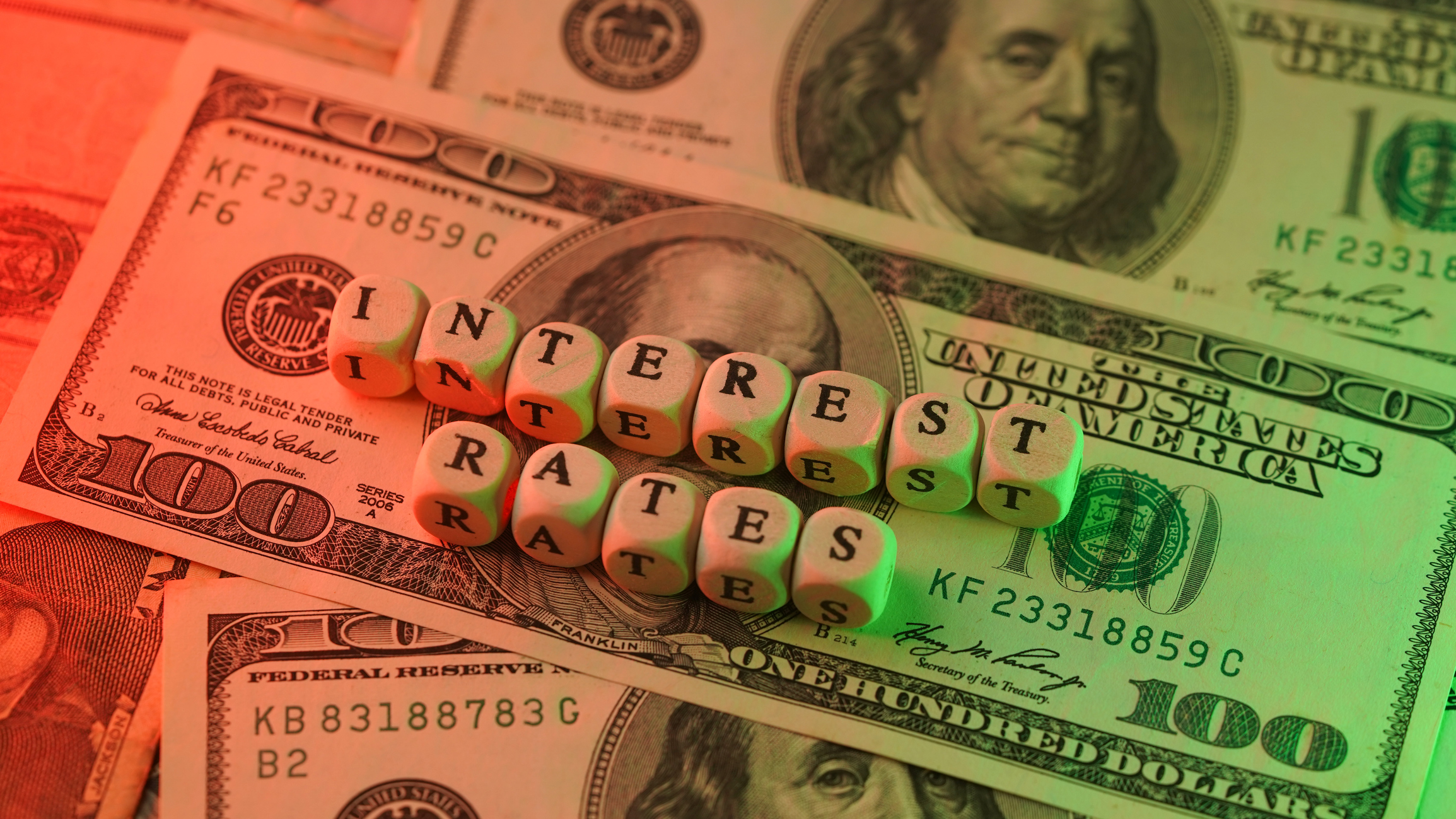Should You Get a Long-Term or Short-Term CD Before the Next Fed Meeting?
Is a long-term or short-term CD better to open before the Fed meeting next week? Here's what you need to know.

Rachael Green
Profit and prosper with the best of Kiplinger's advice on investing, taxes, retirement, personal finance and much more. Delivered daily. Enter your email in the box and click Sign Me Up.
You are now subscribed
Your newsletter sign-up was successful
Want to add more newsletters?

Many feel certain that the Federal Reserve will pause cutting interest rates at the upcoming Fed meeting on January 28.
Considering savings rates hang in the balance, this should be a closely watched decision if you have savings goals in the short- to medium-term.
According to the CME Group's Fed Watch tool, economists are overwhelmingly confident that the Fed will hold rates at the 3.50% to 3.75% range next week. Looking ahead to the subsequent meeting, which is in March, analysts anticipate the central bank will continue holding rates where they are, with some expecting another rate cut won't come until spring or summer.
From just $107.88 $24.99 for Kiplinger Personal Finance
Become a smarter, better informed investor. Subscribe from just $107.88 $24.99, plus get up to 4 Special Issues

Sign up for Kiplinger’s Free Newsletters
Profit and prosper with the best of expert advice on investing, taxes, retirement, personal finance and more - straight to your e-mail.
Profit and prosper with the best of expert advice - straight to your e-mail.
If you've waited to open a CD account until now or if your current CD account is nearing maturity, you're likely considering locking in rates ahead of the next meeting. Which CD should you open before the conclusion of the Fed meeting — a short-term or long-term account?
Use the tool below, powered by Bankrate, to compare CD rates today, or keep reading for our recommendations on the best CDs to consider ahead of the January Fed meeting.
Should you get a long- or short-term CD before the Fed meeting?
When comparing current CD rates, you'll notice that the best rates offered are mainly on short-term CDs. However, the difference is minimal.
If you're comfortable with a long-term time commitment, a five-year CD is a solid option now, with some of the top-earning accounts offering 4% APY. While many one-year CDs have rates at about the same level, locking in those rates for longer will pay off in the long run.
Putting $5,000 into a one-year CD with a rate of 4% will earn you more than $200 in interest, if compounded daily. But if you want to open another CD once that one matures, you might have to settle for a much lower rate, depending on what happens in the next year.
On the other hand, if you lock in that 4.% for a five-year CD, you'd maintain that savings rate for five years, earning more than $1,000 in total, if compounded daily.

Locking in high yields for as long as possible can be a smart savings strategy, but there's one factor to consider before you fund the account: When putting money into a CD, you must be prepared to “set it and forget it.”
That means not accessing the cash until the CD matures, which can prove challenging if your cash is tied up for several years. If you withdraw funds early, you'll be charged a fee that can offset any interest earned.
If you can't commit to a long-term CD, it's still worth opening a short-term one. While you run the risk of rates dropping after it matures, it will still help you earn extra cash without tying up your money for an extended time.
It's also worth opening a high-yield savings account, although these accounts won't allow you to lock in rates. For any savings (such as an emergency fund) that you need to be able to access at any time, a high-yield savings account allows you to earn a little interest without tying up your cash.
Use the tool below to explore and compare some of today's best offers, powered by Bankrate:
Rates for long-term CDs are on the rise

In the last several years, there was a surge in the popularity of CD accounts driven by rapidly rising rates in response to the Fed's interest rate-hiking campaign in 2022 and 2023, which pushed the federal funds rate to its highest level since 2001.
Now, there's been uncertainty as people wait to see the impacts of tariffs, concerned about stock market volatility in the face of geopolitical concerns, and unsure of the future of the Fed after Chair Jerome Powell's term, which is set to end in May 2026.
When there is uncertainty, consumers seek ways to keep their savings strong for as long as they can. For many, this now means using longer-term CDs.
While consumer demand for shorter-term CDs dominated for much of 2025, the balance might soon start to shift. In December, five-year CDs saw more APY increases than shorter-term CDs for the first time in over a year, according to a CD Valet analysis.
"Going longer than 12 months comes with risk (but also potential reward), as the economy is now the wild card in the future path of deposit rates," John Blizzard, founder of CD Valet, told Kiplinger. If you can afford to lock up your cash for longer than a year, that might be where you find the strongest yields ahead of the upcoming Fed meeting.
Related Content
Profit and prosper with the best of Kiplinger's advice on investing, taxes, retirement, personal finance and much more. Delivered daily. Enter your email in the box and click Sign Me Up.

Erin pairs personal experience with research and is passionate about sharing personal finance advice with others. Previously, she was a freelancer focusing on the credit card side of finance, but has branched out since then to cover other aspects of personal finance. Erin is well-versed in traditional media with reporting, interviewing and research, as well as using graphic design and video and audio storytelling to share with her readers.
- Rachael GreenPersonal finance eCommerce writer
-
 4 High-End Experiences Worth the Splurge After 50
4 High-End Experiences Worth the Splurge After 50These curated date ideas provide the perfect backdrop for couples ready to enjoy the very best that the world has to offer.
-
 Health Care Stocks Have Sagged. Can You Bet on a Recovery?
Health Care Stocks Have Sagged. Can You Bet on a Recovery?The flagging health care sector has perked up a bit lately. Is it time to invest?
-
 Costco's Auto Program: Can Membership Pricing Really Save You Money on a Car?
Costco's Auto Program: Can Membership Pricing Really Save You Money on a Car?Costco's Auto Program can simplify the car-buying process with prearranged pricing and member perks. Here's what to know before you use it.
-
 What Is an Assumable Mortgage and Could It Save You Thousands?
What Is an Assumable Mortgage and Could It Save You Thousands?With mortgage rates still elevated, taking over a seller’s existing home loan could lower monthly payments — if the numbers work.
-
 Have You Fallen Into the High-Earning Trap? This Is How to Escape
Have You Fallen Into the High-Earning Trap? This Is How to EscapeHigh income is a gift, but it can pull you into higher spending, undisciplined investing and overreliance on future earnings. These actionable steps will help you escape the trap.
-
 I'm a Financial Adviser: These 3 Questions Can Help You Navigate a Noisy Year With Financial Clarity
I'm a Financial Adviser: These 3 Questions Can Help You Navigate a Noisy Year With Financial ClarityThe key is to resist focusing only on the markets. Instead, when making financial decisions, think about your values and what matters the most to you.
-
 Where Olympians Store Their Medals is a Great Lesson For Your Valuables and Cash
Where Olympians Store Their Medals is a Great Lesson For Your Valuables and CashWhat you can learn about protecting your cash and values from where Olympians store their medals.
-
 An Executive's 'Idiotic' Idea: Skip Safety Class and Commit a Federal Crime
An Executive's 'Idiotic' Idea: Skip Safety Class and Commit a Federal CrimeSeveral medical professionals reached out to say that one of their bosses suggested committing a crime to fulfill OSHA requirements. What's an employee to do?
-
 How You Can Use the Financial Resource Built Into Your Home to Help With Your Long-Term Goals
How You Can Use the Financial Resource Built Into Your Home to Help With Your Long-Term GoalsHomeowners are increasingly using their home equity, through products like HELOCs and home equity loans, as a financial resource for managing debt, funding renovations and more.
-
 How to Find Free Money for Graduate School as Federal Loans Tighten in 2026
How to Find Free Money for Graduate School as Federal Loans Tighten in 2026Starting July 1, federal borrowing will be capped for new graduate students, making scholarships and other forms of "free money" vital. Here's what to know.
-
 How to Choose the Best Internet Plan in Retirement
How to Choose the Best Internet Plan in RetirementYour internet needs can change dramatically after you stop working. Here's how to make sure you're not overpaying (or underpowered).